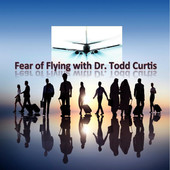13 August 2014; AF Andrade Empreendimentos e Participações Cessna 560XLS+ Citation Excel; PR-AFA; Guarujá, Brazil: The aircraft was approaching Guarujá Airport after a charter flight from Santos Dumont Airport in Rio de Janeiro, and crashed into a residential area about 4.3 km fro the runway. Both pilot and all five passengers were killed. Among the passengers were a candidate for president of Brazil, Eduardo Campos, his wife, and one of their five children.
This particular crash is of interest to AirSafe.com because of the status of one of the passengers. Candidates for the highest political offices in Brazil, the United States, and other democracies have to travel extensively around the country, and if they have not already been elected to those offices, they don't have access to the kinds of military or airliner aircraft used by those who are currently in those offices.
In January 2008, after the private plane carrying presidential candidate Senator Barack Obama was damaged in an incident on the ground at Chicago's Midway Airport, AirSafe.com pointed out US policy may expose presidential and vice presidential candidates to excessive air transportation risks. While the US currently provides Secret Service protection for the presidential and vice presidential nominees of major political parties, there are no special provisions or legal requirements for air transportation.
In short, US laws and regulations provide world-class protection from assassins for candidates seeking to be elected to the offices of president and vice president, but takes no special precautions to protect candidates from the risk of air travel. In the US, these candidates spend several months flying around the country, in everything from helicopters and smaller private planes to executive jets and airliners.
This kind of intense flying may also be done by presidents and vice presidents seeking reelection, but they are typically flown on specialized aircraft that are maintained and operated at a level at or above that of a typical airline aircraft. Also, in the US the sitting president and vice president don't fly on the same aircraft. The same is not true for candidates seeking these offices.
Taking extraordinary steps to protect a world leader does not prevent them from falling victim to a plane crash. Since WWII, at least eight national leaders or heads of international organizations have been killed in plane crashes. However, not taking at least reasonable steps to protect candidates seeking high office may be financially sound in the short run, but increases the chance that an accident will have potentially devastating effects to a nation's electoral process.
The potential policy question for Brazil, the US, and other countries that choose their leaders by popular vote is whether exposure to air travel risks faced by presidential candidates should be limited by requiring that flights taken by candidates meet some minimum set of standards. A realistic limitation could take many forms, such as requiring candidates to fly with aircraft operators or airlines that meet relatively high operational standards, or perhaps requiring that candidates use government or military air transportation.
The reasons for even considering such a a policy are the potentially negative political and social impacts of having a candidate seriously injured or killed during a campaign, especially from manageable risks such as those associated with air travel.
One can only speculate the effect that the Campos campaign may have had on the election, but there is no doubt that had he been elected, he would have had a profound effect on the direction of Brazil's political, social, and economic future. Given the potential impact that potential presidential candidates may have, it seems reasonable for Brazil, the US, and other countries to consider some kind of risk reduction policy for candidate air travel that may make it less likely that an accident will lead to a catastrophic disruption in the presidential election process.
Resources
Eduardo Campos Wikipedia entry











